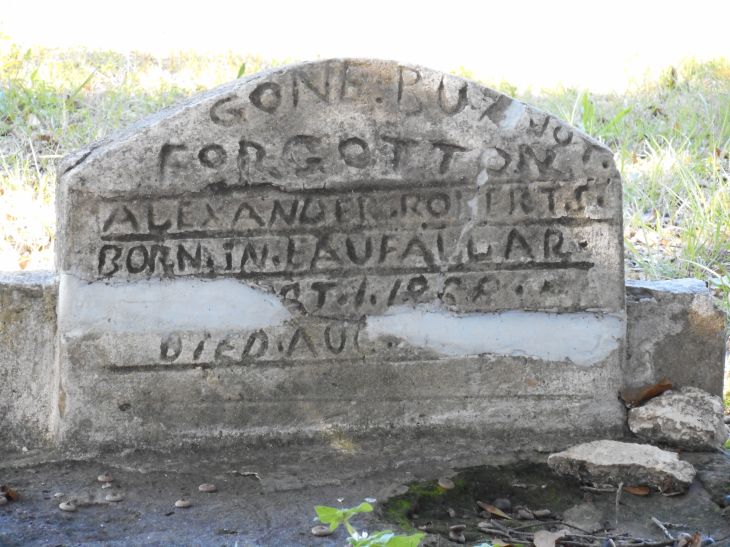 I met Bridget yesterday in a cemetery so small and unnoticed it almost looked like a vacant city lot. The headstones were scattered and homemade. In the middle of the cemetery, there was a big old live oak tree, and near the tree, a single wooden bench.
I met Bridget yesterday in a cemetery so small and unnoticed it almost looked like a vacant city lot. The headstones were scattered and homemade. In the middle of the cemetery, there was a big old live oak tree, and near the tree, a single wooden bench.
We were installing graphic panels in a wooden kiosk, panels that helped show and tell the story of the cemetery and some of the people buried there. Occasionally people passed by on foot or bicycle, greeting us politely, curious about what we were doing there.
Bridget called to us from her house across the street, and before long she was beside us, sporting plaid pajamas, a gray sweatshirt, and a cheery pink hat. She’d been keeping an eye on the cemetery and the kiosk, she told us, and she loved the idea that the cemetery’s history was being preserved.
Bridget had served in the Army, we learned, been in Germany, knew something of Homeland Security, held a degree from the local university. She was a minister now.
Bridget told me a story about Mary, who used to walk through the neighborhood every day. Bridget became acquainted with her, and they used to walk together. “Miss Mary used to tell me this was good for her mind, walking here,” Bridget said proudly. “We got used to seeing her around all the time. Folks would talk with her, and she would talk with them. She was just a common woman, in common clothes, you understand? Nothing fine or fancy about her.”
“Wasn’t till later we found out Miss Mary was from an old Pensacola family, and she had money. She never let that be what she was about. She just loved walking here, and she would talk to anybody, and we all knew her. You know what? I bet Miss Mary was the safest woman around. She wasn’t big, or tough, but nobody bothered her.”
I thought on Bridget’s words quite a bit the rest of the day. A woman like Miss Mary could have stayed tucked away in a big house in a gated neighborhood, never knowing anything of the people who lived in the communities she passed through — or around — on her way to other places. She could have kept her friends and associations limited to just people who were like her. But she didn’t. Mary’s family was successful in business, and they gave back most generously to the community that had been good to them.
And then I thought: would we do that now? Walk through an unfamiliar neighborhood, taking time to greet people and be greeted by them, not just rushing through on our way somewhere else? If it weren’t for Copper, I might not have the inclination to walk through my own neighborhood, let alone one that wasn’t anywhere near my home. But Miss Mary, she did exactly that, with an open mind and an open heart, and she found not only her way, but her place.
